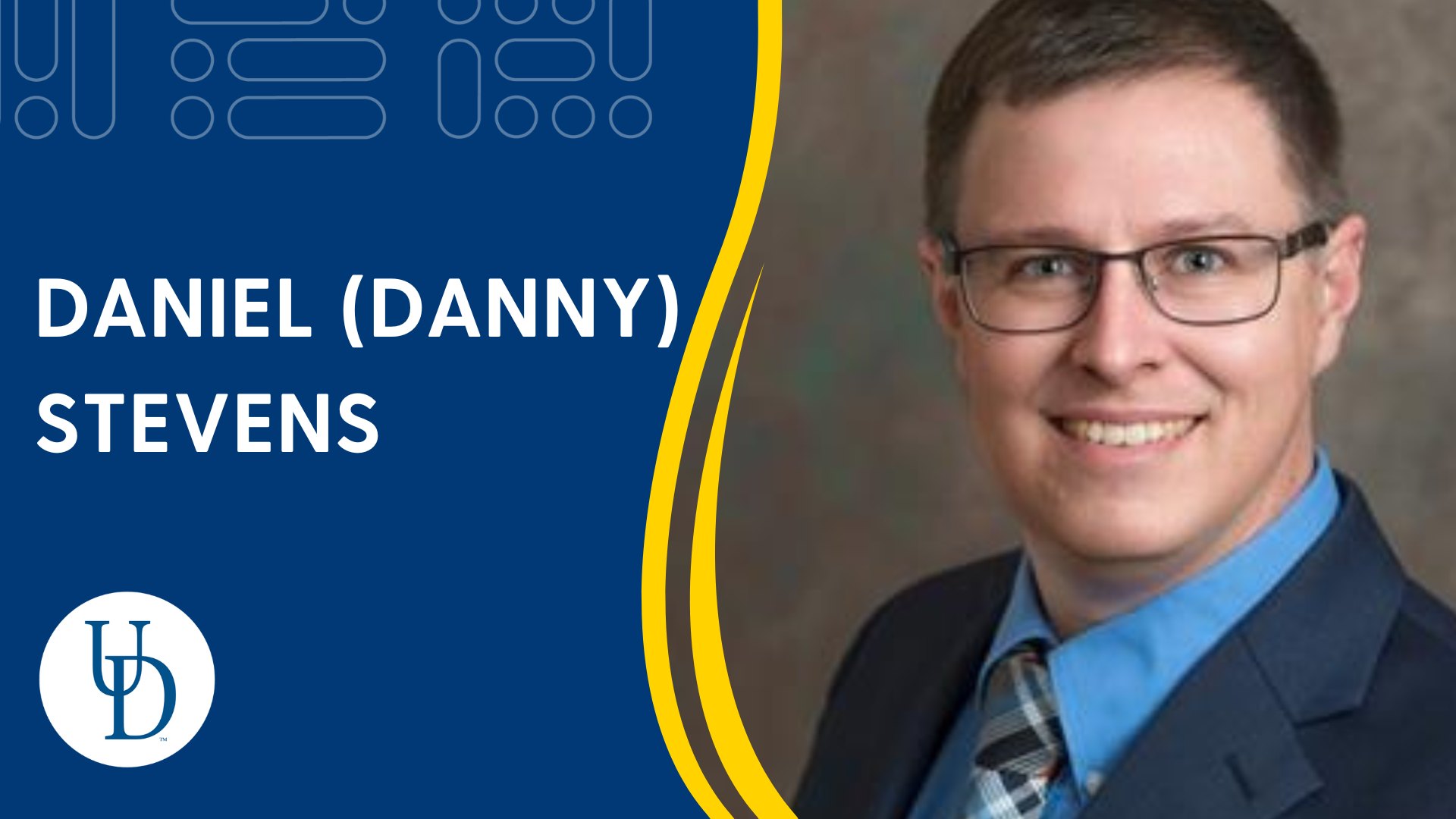
Daniel B. Stevens
Daniel B. Stevens
Professor, Music Theory
Office: 209C Amy E. du Pont Music Building
Resources and Links
Biography
Daniel B. Stevens is Interim Director of the University of Delaware School of Music and Professor of Music (Theory). Prior to his appointment, Stevens served the School of Music as Associate Director of Undergraduate Studies (2017–2023), Faculty Senator (three terms), and as a representative to the UD chapter of the AAUP.
Nationally recognized for his innovative, creative, and engaging approaches to teaching music theory and aural skills, Stevens received the 2023 Pedagogy Award from the Society for Music Theory for his contributions to Foundations of Aural Skills, a new open-access aural skills textbook by Timothy Chennette (Utah State University). Stevens's publications on music theory pedagogy explore the ways in which active, creative, and participatory listening practices can provide students with adaptable tools for developing an analytical understanding and interpretive insight into music that is heard. These writings are accessible in the Journal of Music Theory Pedagogy and Engaging Students: Essays in Music Pedagogy. In particular, Stevens's 2016 revival and update of the guide-tone method, published in the Journal of Music Theory, has made a wide impact on aural skills pedagogy across the country. Further work on this method is available in The Routledge Companion to Music Theory Pedagogy, edited by Leigh VanHandel (2020) and a co-written essay (with Jennifer Shafer and Philip Duker) in The Routledge Companion to Aural Skills Pedagogy: Before, In, and Beyond Higher Education, edited by Kent Cleland and Paul Fleet (2021). Building on these publications, Stevens gave an invited keynote address and workshop on listening and improvisation at the 2019 conference, Pedagogy Into Practice: Teaching Music Theory in the Twenty-First Century. Stevens currently serves as reviews editor for the Journal of Music Theory Pedagogy.
An advocate for problem-based learning and community engagement, Stevens has guided his students through numerous community-engaged learning experiences. Sample projects include collaborating with representatives from UD's STAR Health campus to compose and record a soundtrack for a community-facing video showcasing the Physical Therapy Clinic, interviewing seniors in an Early Memory Loss program at the Newark Senior Center and producing a concert of new arrangements based on input received, and creating modular musical arrangements specifically designed for children with autism spectrum disorder. The music and autism project is now an ongoing research study supported by two grants from the UD Partnership for Arts and Culture and the UD College of Health Sciences Maggie E. Neumann Research Fund. Collaborative partners include Dr. Matthew Mauriello of the UD Sensify Lab (part of the College of Engineering's Department of Computer and Information Sciences), Autism Delaware, the Rt. 9 Library and Innovation Center (New Castle, DE), and the Christina and Red Clay school districts. In 2015, Stevens founded the Music Theory Outreach Project, an initiative aimed at bringing local music theory teachers at the high school and college levels into dialogue in order to foster greater understanding of pedagogical practices in both contexts. Stevens's essay on community-engaged learning in the music theory classroom is available in The Oxford Handbook of Public Music Theory, edited by J. Daniel Jenkins (2021).
Stevens's other research interests stem from his performance background as a pianist and cellist. Publications and presentations include a study of embodied rhythm and expressive timing in two performances by composer-pianist Robert Helps, published in The Oxford Handbook of Music and the Body, edited by Youn Kim and Sander L. Gilman (2018); an analytical and interpretive study of iconic, chiastic gestures in works for violoncello; and a corpus study of music by J.S. Bach, Vivaldi, Mozart, Schubert, and Chopin that paradoxically places a V42 chord in a predominant position, thereby bringing counterpoint, bass scale step, and harmonic function into conflict. Stevens has presented his research at numerous regional, national, and international conferences, including the Society for Music Theory, Pedagogy Into Practice: Teaching Music Theory in the Twenty-First Century, College Music Society, Music Theory Society of the Mid-Atlantic, Music Theory Midwest, and the Rocky Mountain Society for Music Theory. International presentations include talks given at Performing Romantic Music: Theory and Practice, held at Durham University, U.K. in July 2008; and Music and the Body, held at the University of Hong Kong in March, 2012.
Stevens received his Ph.D. in Music Theory from the University of Michigan. His dissertation, Brahms's Song Collections: Rethinking a Genre, explores the role of genre in the identification and interpretation of these works and won the American Brahms Society Karl Geiringer scholarship (2007). Stevens received his B.M. in Music Performance from the University of South Florida in Tampa, where he studied with composer-pianist Robert Helps and cellist Scott Kluksdahl. Later, he earned an M.M. in Music Performance from the San Francisco Conservatory of Music, where he studied piano with Evelyne Brancart and Sharon Mann, and chamber music with Mark Sokol, Bonnie Hampton, and Nathan Schwartz. Stevens performs frequently with his wife, oboist Elizabeth Stevens, and with the New Castle Trio, which he co-founded in 2007.
-

School of Music Announces Director
August 29, 2025 | Written by CAS CommunicationsThe University of Delaware is pleased to announce that Daniel (Danny) Stevens has been appointed director of the School of Music. -
Old College Comes to Life
February 04, 2025 | Written by Diane StopyraA new exhibition, four years in the making, celebrates the oldest building on UD’s campus -
School of Music Announces Interim Director
January 29, 2024 | Written by CAS CommunicationsThe University of Delaware is pleased to announce that Daniel (Danny) Stevens has been appointed interim director of the School of Music.

